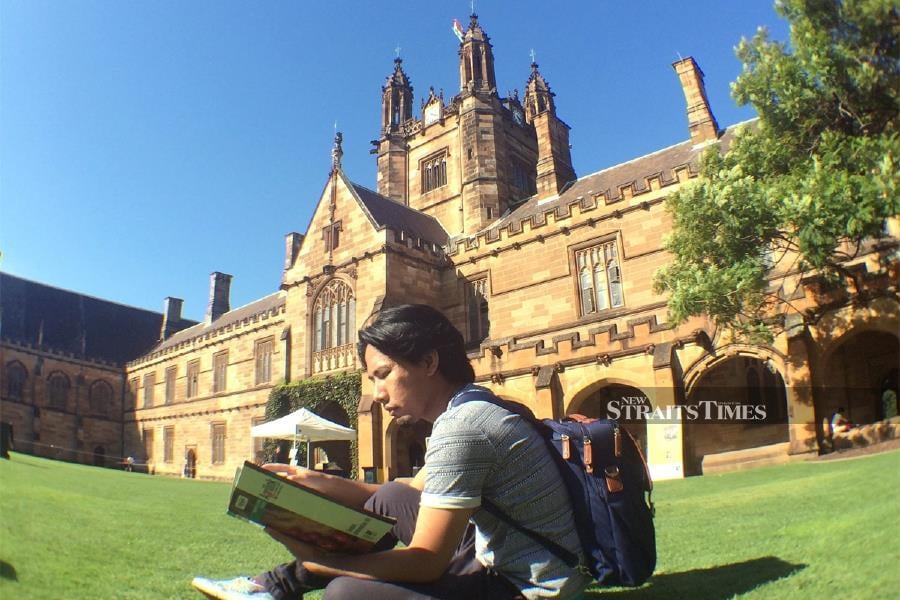
LETTERS: It seems that Australian visa policies for international students are going through some notable changes, especially in terms of financial requirements.
The recent increase in the minimum savings required for Malaysian students intending to study in Australia could pose challenges for many aspiring students and their parents.
The return to pre-Covid-19 levels of evidence of financial capacity, after a reduction in recent years that sought to encourage the return of students to Australia, is in recognition of the rising cost of living in Australia. New Zealand also announced similar changes in recent months.
This move, together with further reforms expected to be announced in the upcoming Australian federal budget that include a potential hike in student visa fees and caps on international student visas, reflects Australia's efforts to manage the influx of international students post-Covid-19.
The commitment to rationalising migration levels might be the message the Australian public needs to hear.
However, it was as recent as 18 months ago that Universities Australia, the peak body representing all Australian universities, reported that while "our world-class universities attract hundreds of thousands of international students — more than almost all our global peers, bar two — yet only 28 per cent use their post-study work rights in Australia and just 16 per cent become permanent residents".
Australia's international education sector is its fourth largest export behind coal, iron ore and natural gas, and understandably, the government aims to balance this with managing migration levels and addressing pressures on the property market.
However, recent research conducted by the Property Council of Australia shows that international students account for about four per cent of the property market, having little impact on the rental crisis experienced in the major cities where the majority reside.
While these changes may present initial challenges, constructive dialogue between governments and stakeholders is crucial in navigating these adjustments and ensuring the continued attractiveness and accessibility of Australian education for international students.
The Australian high commission will engage with their Malaysian counterparts locally to provide clarity and will also undertake briefings for education agents who are currently bearing the brunt of the uncertainty.
The opinion generally is that most Malaysian students who are bound for Australia would not be negatively affected by the increase in the savings threshold.
It is also worth mentioning that in times of uncertainty around visa processes and immigration policy, there are several options for an Australian qualification in-country.
Monash, Swinburne and Curtin Universities have all had a presence in Kuala Lumpur and Sarawak for 25 years, with the University of Wollongong a recent newcomer having taken ownership of KDU.
Other undergraduate options include the Sunway Group's relationship with Victoria University, where students have the option of transferring to Melbourne to complete the degree started in Malaysia.
Other post-graduate options include the Melbourne Business School, which provides executive and leadership programmes across Southeast Asia.
The Australian government's commitment to rationalising migration levels while ensuring a sustainable environment for both students and residents reflects a broader policy objective.
The draft "International Education and Skills Strategic Framework (the Framework)" was released on Friday and might have a greater impact than the increase in savings threshold, should it be accepted in its current draft.
The Malaysian Australia Business Council works closely with Australian government representatives in Malaysia, including the Department of Education and Austrade, and will continue to monitor the changing international education landscape.
JAN DREW
Chairperson, Education, Training and, Talent Sub-committee, Malaysia Australia Business Council
The views expressed in this article are the author's own and do not necessarily reflect those of the New Straits Times